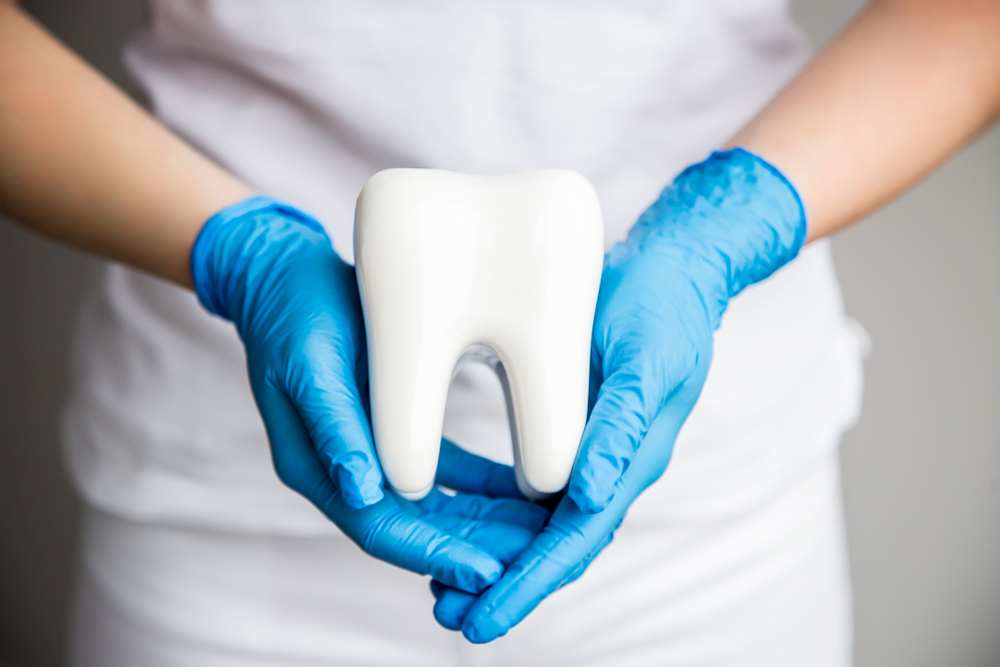Hormones and Oral Health: A Two-Way Street

The intricate network of hormones coursing through our veins not only regulates our internal body processes but also plays a significant role in oral health. This interaction between hormones and oral health is a two-way street; not only do hormones influence oral health, but oral health conditions can also impact hormone levels. This relationship is as important to understand as the value of regular cleanings and fillings in maintaining a healthy mouth.
Estrogen and Gum Disease:
Women who undergo hormonal changes during puberty, menstruation, pregnancy, and menopause may experience an increased risk of gum disease. Increased concentrations of estrogen and progesterone result in heightened blood flow to the gums, rendering them more vulnerable to irritation and inflammation. Regular oral cleanings at a reputed Waterloo dentistry practice can significantly reduce the risk of developing gum disease during these hormonal changes.
Progesterone and Gingivitis:
Elevated progesterone levels can cause a condition known as ‘pregnancy gingivitis.’ Typically occurring between the second and eighth month of pregnancy, this type of gum disease has the potential to elevate the likelihood of premature birth and low birth weight among infants.
Hormone Replacement Therapy (HRT) and Oral Health:
Women undergoing HRT to counteract menopause symptoms may face an increased risk of gum inflammation. It is crucial to communicate any ongoing hormonal treatments with your dental professional to adjust your oral health regime accordingly.
Testosterone and Periodontitis:
A heightened risk of periodontitis is associated with reduced testosterone levels in males. This severe gum infection can result in tooth loss. Regular dental cleanings can help in early detection and management.
Insulin and Oral Health:
Diabetes, characterized by impaired insulin production, has a substantial impact on oral health. It can potentially lead to dry mouth, gum disease, tooth decay, and even oral infections. Scheduling regular cleanings and fillings at your local Waterloo dentistry clinic is paramount for patients with diabetes.
Cortisol and Oral Health:
Prolonged stress results in heightened levels of the hormone cortisol, which can compromise the immune system’s effectiveness. This can increase an individual’s vulnerability to oral complications such as infections, periodontal disease, and dental cavities.
Thyroid Hormones and Oral Health:
Both hyperthyroidism (overactive thyroid) and hypothyroidism (underactive thyroid) can lead to oral health issues. While the former can cause accelerated tooth eruption and decay, the latter can result in delayed tooth eruption and an enlarged tongue.
Conversely, poor oral health can influence hormone levels, creating a cycle of detrimental effects.
For example:
Oral Health and Heart Disease:
Poor oral health can impact heart health due to the relationship between periodontitis and cardiovascular disease. This connection is thought to be due to the body’s inflammatory response to periodontal bacteria, potentially influencing the production of certain hormones like cortisol.
Oral Health and Pregnancy:
Oral health conditions, such as periodontitis, can elevate levels of biological fluids that induce labor. Maintaining optimal oral health is, therefore, not just about cleanings and fillings but also about safeguarding overall hormonal health.
Understanding the connection between hormones and oral health underscores the importance of maintaining good oral hygiene and regular dental visits. A professional dental clinic, such as a reputable Waterloo dentistry practice, can provide essential cleanings and fillings while also helping you navigate the complex relationship between hormones and oral health.
Whether you’re experiencing hormonal fluctuations due to natural life stages, health conditions, or medical treatments, understanding this symbiotic relationship can help you manage your oral health effectively and reduce the risk of related complications. Navigating the relationship between hormones and oral health can be intimidating, be sure to speak to your dental professional to help you make the best decisions regarding your oral health.
